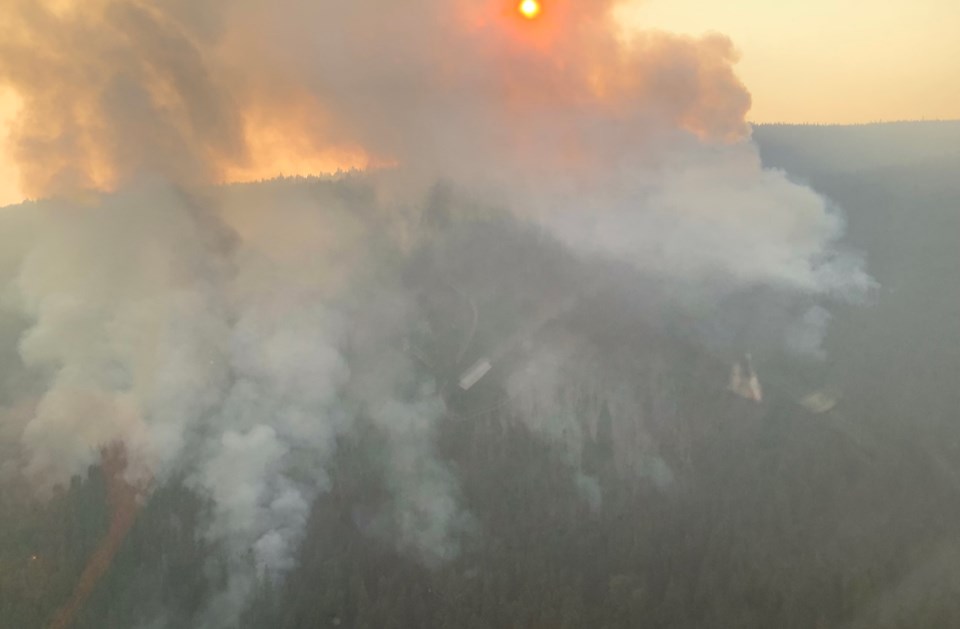With B.C. set to enter what provincial wildfire officials are describing as “the most challenging 24 to 48 hours of the summer,” the McDougall Creek wildfire in the Okanagan is also creating one of the most challenging wildfire seasons for property sales the province has ever seen.
Approximately 4,800 properties in West Kelowna were put on evacuation alert late on Aug. 16. This exapnded to 5,700 properties on Aug. 17, with initial evacuation orders given to 68 properties in the vicinity of Bear Creek Road.
“A lot of people are phoning, asking if their property is going to close, if they can get insurance,” said Tamara Stone, an agent with Re/Max Kelowna. “It’s very unsettling.”
This situation in West Kelowna is impacting the largest area since the dramatic and devastating 2003 Okanagan Mountain Park fire. Development in the region has also put a greater volume and value of development within reach of the fire than the 2003 blaze.
“The distances across lake isn’t very wide, so it’ll be difficult to get insurance for something even where the fire is on the other side of the lake,” Stone said. “We have a number of closing scheduled for next week, and of course that’s tricky.”
An active wildfire within 25 kilometres of a property under contract will typically see most insurance companies hold off binding a new policy, typically essential for financing, until after the threat has passed.
“This situation has had tangible impacts on the real estate market,” said Freddy Marks, managing broker of Re/Max Nyda 3A Group in Chilliwack. “Closings have been delayed for 30 to 90 days due to the fire season and the unavailability of insurance. In some instances, deals have gone sour, leading to contracts not closing at all.”
Changes in recent years mean most contracts have a force majeure clause that allow closing to be delayed, but this can also create challenges if a seller is purchasing a property that depends on the proceeds of a property whose closing is delayed.
Unit sales in the Okanagan have been strong this summer, with numbers in July up 15 per cent versus a year ago. Sales this year to date are down 19 per cent, however. The wildfires will put a further damper on activity, which was already showing signs of slowing in the wake of the Bank of Canada’s latest two interest rate hikes.
While the 2021 fire season was notable for the number and breadth of interface fires, and in particular the incineration of the village of Lytton, this year promises to rival that as fires close in on larger and larger communities.
A record area has already burned this year, at more than 1.6 million hectares, and the BC Wildfire Service says this weekend could see the province break its record for the most wildfires in a single season.
During a provincial briefing on Aug. 17, all residents of the province were warned of an impending surge in wildfire activity due to challenging weather conditions in the wake of an intense heat wave and a drought that has put 28 of the province’s 34 water basins at drought levels 4 and 5 – the most severe on the province’s six-level drought scale.
Emergency Management and Climate Readiness Minister Bowinn Ma told residents in areas where evacuation orders are issued to heed the orders immediately, given the fast-moving and unpredictable behaviour expected of wildfires this weekend.
According to the Insurance Bureau of Canada, it’s too early to estimate insured losses from this year’s wildfire season.
Unlike in jurisdictions such as California, the bureau told Western Investor that wildfire remains “largely insurable” across Canada.
“However, this wildfire season serves as another reminder of the increasing financial vulnerability of many Canadians face due to natural catastrophes and other severe weather events,” the bureau said in a statement.


